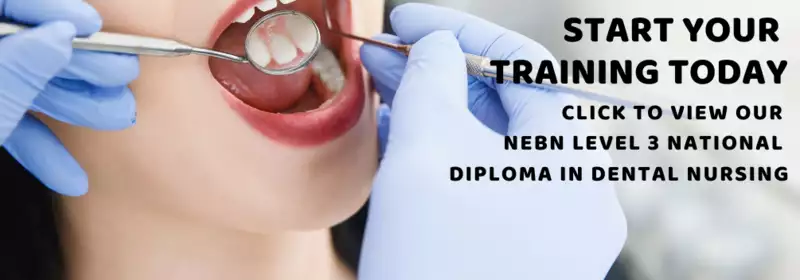When searching for any course – whether it’s online or in a traditional setting – it’s so important to make sure the qualification is recognised.
There is a perception that qualifications gained through online courses are somehow not as good as their bricks and mortar counterparts.
This isn’t the case. All courses have to go through the same accreditation process which means an A Level from one educator is worth the same as one gained somewhere else.
This ensures that whoever you study through, you will achieve the same learning outcomes. The subject matter may differ slightly, but the key objectives are the same across the board.
This ensures you can move into the next stage of your education or career confident you have the skills and knowledge you need.
However, some courses will have more weight depending on who the awarding body is. Especially in areas such as dentistry and medicine.
That’s why it’s important to enrol on the right course. And be mindful of scam course providers as the last thing you want to do is invest your time and money in something that is literally useless.
While rogue educational institutes are few and far between, scams still do exist so beware.

Is your Online Educator on the level?
There are a number of ways you can carry out your due diligence to ensure your online educator is a legitimate business. Below are the main ones to look out for:
UK Provider Reference Number
All learning providers in the UK have a UK Provider Reference Number. If that number isn’t displayed anywhere in the website or in any correspondence, alarm bells should be ringing.
You can contact the UK Register of Learning Providers and they should be able to verify (or not) the status of the provider you are in contact with.
Accreditation
Courses that offer a recognised accreditation upon completion should be recognised by Ofqual – the government body that oversees all qualifications in the UK.
Regulated awarding bodies include Edexcel, City and Guilds, NCFE, CACHE and the NEBDN to name a few. Again, you can contact these awarding bodies to confirm that the course offered by your chosen provider is awarded by them.
Terms and Conditions
Your provider should offer some terms and conditions which – among other things – offer you some form of money back guarantee. Or at the very least a cooling off period.
If there are no Ts and Cs or any kind of protection at all, then something isn’t right.
Communication
If you struggle to get through to your chosen provider during normal working hours, beware. Especially if you’re asked to leave a message or the phone just rings out.
A professional provider will have a phone system in place to help you get to the person you need to speak to as quickly as possible.
Equally, they should have some form of online presence beyond their website. Social Media is an obvious place to start.
It’s also worth checking third party review websites to see if (a) reviews have been left, (b) how authentic those reviews seem and (c) how far back those reviews go.
Tutor Support
If you’ve enrolled with a genuine online educator, then you will be given tutor support. This should ideally be included in the price of the course as they are the ones marking your assignments.
If there is an absence of tutor support completely, something isn’t right.

Regulating Online Courses
If you are studying a dental course, then the course needs to be recognised by the General Dental Council (GDC). If it isn’t then you’re unlikely to be able to practice with the dental nursing qualification you have earned.
Qualifications awarded by the National Examining Board for Dental Nurses (NEBDN) are held in particularly high regard by the profession. However, the qualification doesn’t have to be issued by the NEBDN. It just wouldn’t hurt.
This regulation ensures that everyone is essentially getting the same level of education. While some dental nursing courses may vary slightly in subject matter or how the learning is delivered, the outcomes will be the same.
In addition to this regulation, distance learning courses are developed by subject experts so you can be assured that the material you cover will be relevant.
The NEBDN works with the course providers so all dental nursing students who complete their course will have all the knowledge they need to do the job safely and correctly.
The result, when you pass your course, you are guaranteed a nationally recognised diploma in dental nursing.

Getting Qualified
Entry requirements vary from course to course but in most instances, you will need minimum of two GCSEs at grade C (5) or above in English language and maths or a science subject.
The advantage of studying online is that you can start studying dental nursing right away and complete the course as quickly as you want to.
This is a big advantage over a traditional setting with set term dates. Especially if you want to change career sooner rather than later.
The NEBDN National Diploma in Dental Nursing is a General Dental Council (GDC) recognised dental nursing qualification which covers all outcomes described within the GDC Preparing to Practice document.
It prepares you in the foundations of dental nursing, so you have the knowledge, skills and professional attributes to practice safely and effectively.
To qualify as a dental nurse this way you will need to complete two assessments. The first is a workplace assessment, with a complete record of experience. You will be embedded within a dentistry team and get vital hands-on experience.
The second part is a written and practical assessment that allows you to demonstrate your dental nursing knowledge and decision-making abilities.
Pass both assignments and you will be a fully qualified dental nurse.
learndirect is one of the UK’s leading distance learning providers. Enrolling on our courses provides you with instant access to your learning material so you can start studying right away. You will also have access to a dedicated tutor who will help you through the process. Check out our blog for useful tips on how to get the most out of your study experience.
Click below to enrol on our NEBDN certified and GDC approved, National Diploma in Dental Nursing. Places are limited so don’t delay.



















